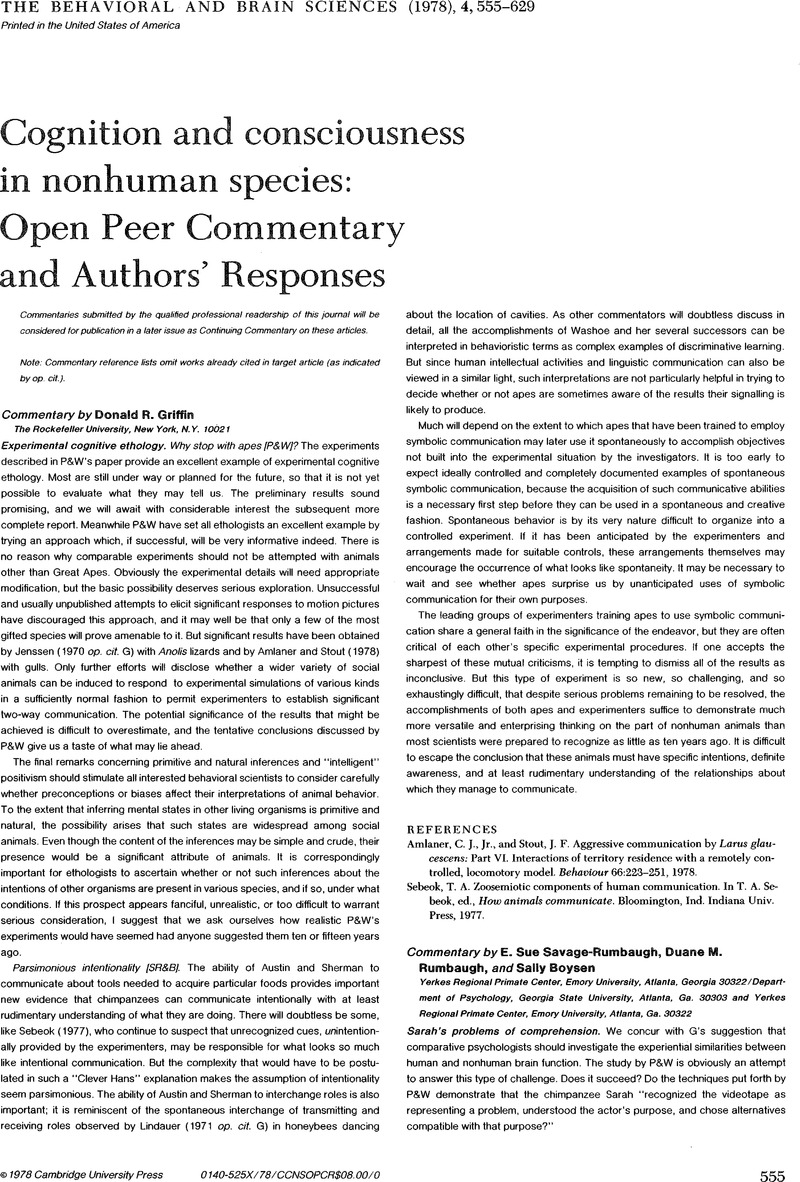No CrossRef data available.
Article contents
Animal cognition without human consciousness
Published online by Cambridge University Press: 04 February 2010
Abstract
An abstract is not available for this content so a preview has been provided. Please use the Get access link above for information on how to access this content.

- Type
- Open Peer Commentary
- Information
- Behavioral and Brain Sciences , Volume 1 , Issue 4: A Special Issue on Cognition and Consiousness in Nonhuman Species , December 1978 , pp. 567 - 568
- Copyright
- Copyright © Cambridge University Press 1978
References
REFERENCES
Darby, C. L., and Riopelle, A. J.Observational learning in the rhesus monkey. Journal of Comparative and Physiological Psychology, 52, 94–98, 1959.CrossRefGoogle Scholar
Davenport, R. K., and Rogers, C. M.Intermodal equivalence of stimuli in apes. Science, 168, 279–280, 1970.CrossRefGoogle ScholarPubMed
Gleitman, H., and Bernheim, J. W.Retention of fixed-interval performance in rats. Journal of Comparative and Physiological Psychology, 56, 839–841, 1963.CrossRefGoogle ScholarPubMed
Gleitman, H., and Steinman, F.Retention of runway performance as a function of proactive interference. Journal of Comparative and Physiological Psychology, 56, 834–838, 1963.CrossRefGoogle ScholarPubMed
Harlow, H. F.The formation of learning sets. Psychological Review, 56, 51–65, 1949.CrossRefGoogle ScholarPubMed
Hebb, D. O., and Thompson, W. R. The social significance of animal studies. In Lindzey, G., (ed.), Handbook of Social Psychology, vol. 2, Reading, Mass., Addison-Wesley, 1954.Google Scholar
Michotte, A.La perception de la causalite. Louvain, Institut Supérieur de Philosophie, 1946.Google Scholar


